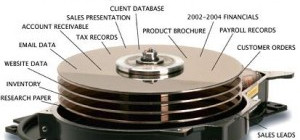 WordPress like any other website is vulnerable to hacks in a way that you will not be able to quickly detect the malware. Common symptoms include:
WordPress like any other website is vulnerable to hacks in a way that you will not be able to quickly detect the malware. Common symptoms include:
- Errors while uploading a file.
- Options available to modify the already existing files.
- Injecting code to the database, pages, posts.
- Links that aren’t relevant or permitted.
In the section below, we will be providing you with a few ways to protect your WordPress website.
Use strapping passwords
The first and the most important step to protect your WordPress from hackers is by securing your account with a strong password which is different from the ones that you have used for all your other internet accounts. A complex password that is unique and has been made up of alphabets, special characters and numeric can be helpful in such cases.
Update WordPress themes and plugins
To protect your blog from being hacked, it is crucial to visit your WordPress account regularly so that you can update it with the latest themes and plugins because it doesn’t take long for the exploits to take over the site soon after the articles have been published. If you still cannot update it due to the lack of access, it would be better to replace the themes and plugins altogether. When you are choosing a theme or plugin, it would be important to choose from the ones that offer present support requests and have been rated highly, enables the user to have frequent updates and responds quickly to questions or requests posted by their users. When you are buying a premium theme that is accompanied by a plugin, purchase the plugin separately so that you can distinctly update them just to be a little extra security.
Create protection for the network and device used
Protecting the network of your internet connection and all the devices that are using it falls under the “good practices” of securing your activities, and thereby it is integral for the antimalware software of your device to scan them regularly. Besides, you must also be careful about the websites that you visit because malware like Trojans, rootkits, and viruses (described on this website) might foil themselves under the veil of legitimate files and websites, browsing through which will assist them to misuse the sensitive information that you exchange over the internet, because there is nothing a hacker cannot attack!
Avoid using public Wi-Fi
Using the public Wi-Fi might sound like a convenient option when you are stuck at the airport, bus-stop or parks for hours and your mobile network is not working suitably, but, it makes your information vulnerable to the hackers. Installing a VPN application and creating encryption for internet trafficking can be helpful in such cases. Logging in to your WordPress using the public network will expose your login information to the attackers who can use exploit kits to create surveillance.
Use better webpages to host your content
In today’s world, numerous web engines exist in the market that will provide you with enhanced security for your content in WordPress by cleaning your site. They will periodically run the scanning process and eliminate any sort of malware immediately after they are detected.
Back up your entire WordPress blog
This is the most important factor that cannot be ignored. You can fear nothing if there is a backup copy of the site in stock.
Provide access only to those you trust.
The first way is to provide site access only to people who will not use it for bad purposes. Anyone who does not need access should not be there. Even with those people you consider trustworthy, it’s important to give them only the roles and opportunities that they need. Thus, the likelihood of accidents (or deliberately bad actions) is significantly reduced.
Scan your PC for viruses
You need to monitor not only your WordPress website, but also your whole computer. You should have a frequently updated antivirus. Do you want to infect your site by posting several virus files there?
SFTP is not FTP
All file uploads to your site should occur through SFTP, if your provider allows this. If not, go to a more secure host. The connection will be via a secure protocol and the “bad guys” will not be able to intercept it.







